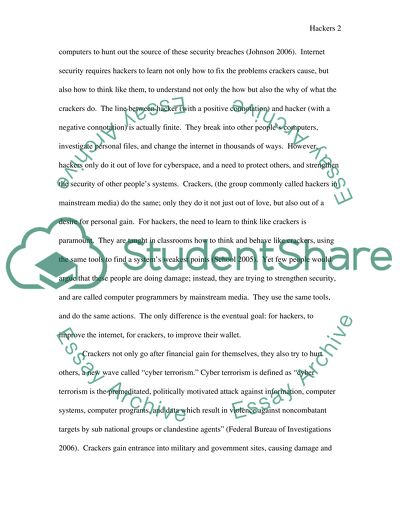Cite this document
(“Hackers are the true defenders of cyberspace Essay”, n.d.)
Hackers are the true defenders of cyberspace Essay. Retrieved from https://studentshare.org/information-technology/1499305-hackers-are-the-true-defenders-of-cyberspace
Hackers are the true defenders of cyberspace Essay. Retrieved from https://studentshare.org/information-technology/1499305-hackers-are-the-true-defenders-of-cyberspace
(Hackers Are the True Defenders of Cyberspace Essay)
Hackers Are the True Defenders of Cyberspace Essay. https://studentshare.org/information-technology/1499305-hackers-are-the-true-defenders-of-cyberspace.
Hackers Are the True Defenders of Cyberspace Essay. https://studentshare.org/information-technology/1499305-hackers-are-the-true-defenders-of-cyberspace.
“Hackers Are the True Defenders of Cyberspace Essay”, n.d. https://studentshare.org/information-technology/1499305-hackers-are-the-true-defenders-of-cyberspace.


